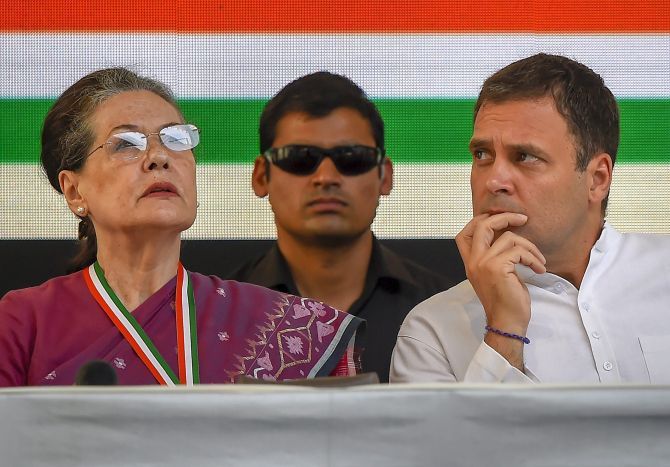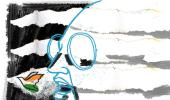The Congress, which released its election manifesto on Tuesday, promised to amend the Armed Forces (Special Powers) Act or the AFSPA, that grants special powers to the Indian armed forces in 'insurgency-hit areas', if the party came to power after the ensuing Lok Sabha elections.

The Congress has also promised to omit the contentious British-era law of Section 124A of IPC that defines sedition if voted to power.
On the AFSPA, the party manifesto said, "Amend the Armed Forces (Special Powers) Act, 1958 in order to strike a balance between the powers of security forces and the human rights of citizens and to remove immunity for enforced disappearance, sexual violence and torture."
The Congress said that the AFSPA Act and Disturbed Areas Act in Jammu and Kashmir will be reviewed if the party came to power after the polls.
"The Armed Forces (Special Powers) Act and the Disturbed Areas Act in Jammu and Kashmir will be reviewed. Suitable changes will be made in the text of the laws to balance the requirements of security and the protection of human rights," the party said in the manifesto.
Apart from Jammu and Kashmir, the AFSPA Act is applicable in Nagaland and Manipur and some parts of north-eastern states.
According to The Disturbed Areas (Special Courts) Act, 1976, once declared 'disturbed', an area has to maintain the status quo for a minimum of three months.
Under AFSPA, the armed forces are given powers to arrest, use force and even open fire on anyone who violate the law. But over the years, civilians have levelled allegations of army excesses in the insurgency-hit areas.
Human right groups have been demanding the scrapping of the AFSPA act, claiming the law gives "sweeping powers" to the soldiers to act against civilians. Activists have also alleged extra-judicial killings in those areas where AFSPA is in force.
Notably, renowned Manipuri activist Irom Sharmila launched an indefinite fast for 16 years (2000-2016) in protest against the controversial act.
On sedition it says, "Omit Section 124A of the Indian Penal Code(that defines the offence of ‘sedition’) that has been misused and, in any event, has become redundant because of subsequent laws," the manifesto said.
The sedition law hit headlines in 2016 when Delhi's Jawaharlal Nehru University Students Union president Kanhaiya Kumar was slapped with charges over allegations that he supported 'anti-India' slogans in campus.












 © 2025
© 2025